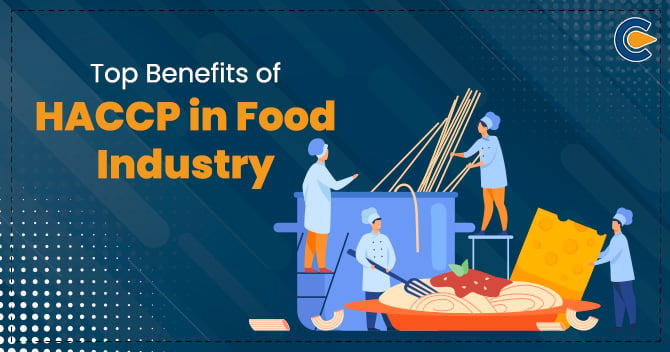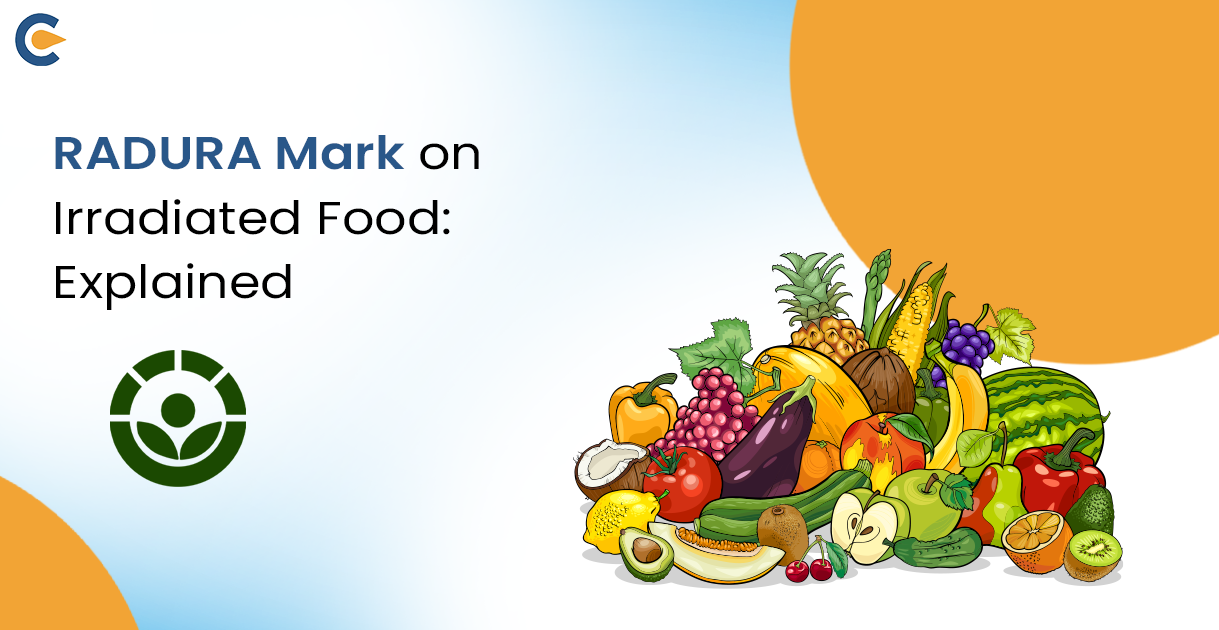India’s food industry comprises of various segments such as fruits, vegetables, plantations, fisheries, and confectioneries. The food industry has seen tremendous growth in the past few years. The food processing industry of India amounts for 32% of the food market aggregate of the country. It contributes approximately 8.80 GVA in Manufacturing and 8.39% of Gross Value Added (GVA) in Agriculture, 6% of aggregate industrial investment, and 13% of India’s exports, which is why there is a need for HACCP in the Food Industry. Most of the entities involved in the food business are willing to opt for the HACCP because of the Top Benefits of HACCP in Food Industry[1].
What is HACCP?
HACCP stands for Hazard Analysis Critical Control Point. It refers to the system which involves the identification and evaluation of food safety hazards in order to control and prevent such hazards. Food hazards can be described as chemical, physical or biological agents that can cause injury or illness to the person consuming that food. HACCP acts as a preventive measure as it accesses the potential hazards that can occur during the processing of the food product to eliminate or minimize such hazards before they can hamper people’s health.
Principles of HACCP implementation
There are 7 principles of HACCP Implementation, which is enumerated below
- Hazard Analysis
This first principle involves identifying the potential hazards that should be eliminated or minimized to ensure food safety. For example, bacteria are a biological hazard, and the food industries should take measures to prepare their food in such a way which can successfully tackle this issue.
- Determining the Critical Control Point (CCP)
Critical Control points are the point where one can control the hazard to the acceptable limit. E.g. – selecting the vegetables from a hygienic place or cooking the raw vegetables properly in order to eliminate the presence of any natural chemicals.
- Analysing the Critical Limits
The Critical limit is the minimum or maximum value at which a chemical, biological or physical hazard can be controlled in order to avoid any risks
E.g., consuming the bread in the prescribed time span, i.e. 4-5 days, to avoid it from becoming stale.
- Establishing the monitoring procedure
This refers to a series of planned observations which ensures that the CCP are within critical limits, e.g. ensuring that the water is kept in the refrigerator only till the time it is not freezing.
- Taking Corrective Actions
This is done when a potential hazard is identified during food production and correcting or eliminating the hazard to ensure food safety. E.g., reprocessing or destroying the food items.
- Establishing Verification Procedures
This is done to ensure that everything is in accordance with the HCCAP Plan. E.g. if a refrigerator has been replaced due to technical issues, it is necessary to ensure that it is working properly as per the prescribed limits.
- Maintaining Records and Documents
This involves maintaining proper records and documents to ensure proper implementation of the HACCP Standards.
Top Benefits of HACCP in food Industry
The top benefits of HACCP in Food Industry are enlisted below –
- Prevention of Food Safety Hazards
This is the most important benefits of HACCP. The compliance with the HACCP standards ensures that the food is safe from any physical, chemical or biological hazards. This also helps to ensure that personal hygiene and accurate temperature standards are maintained.
- Ensures compliance with the Food Laws
The food laws in India are governed by the Food safety and standards Act. The HACCP helps to ensure the compliance of the food and safety standards which helps the business to obtain FSSAI conveniently.
- Helps Control Food Safety Risks throughout the supply chain
HACCP helps to ensure food safety on all levels of the supply chain, be it the production, procurement, distribution, storage, consumption etc.
- Helps in Standardization of the Food Production Process
The principles of HACCP involve the identification of Critical Control points which can ensure food safety. This helps standardise the food process and provides corrective measures to ensure that the standards are adequately maintained.
- Customer Retention
When the food is in accordance with the safety standards of HACCP, customers have a sense of confidence as they are assured about their health without fearing illness. This encourages the customers to opt for that particular food industry.
- Better Goodwill of the Business
The HACCP-compliant business has the edge over its competitors in the food industry because the business is considered more reliable than the other food industries.
- Better Investments
When a business has a good reputation in the market, it attracts better investors nationally and internationally which makes fundraising easier
- Profitability
When a business has credibility and reliability along with better customers and better investors, the business earns more profit as compared to other industries. The business is also able to avoid litigations related to consumer protection laws.
Conclusion
HACCP can be considered an obligation because it is essential for ensuring food safety and maintaining safety standards. However, it can still encourage businesses to opt for HACCP because there are some top benefits of HACCP in the food industry.
Read our Article:How to set up a Food Business in India










